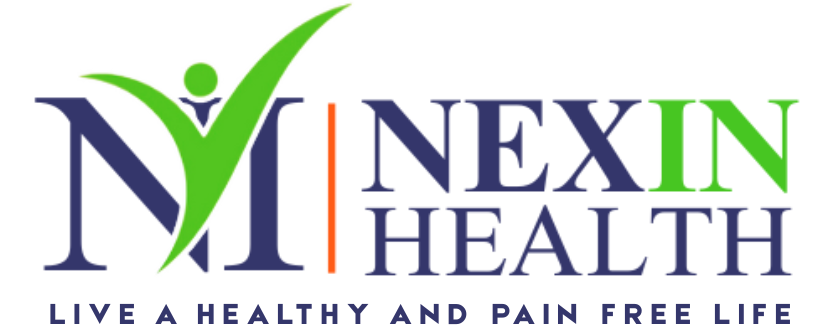Congestive Heart Failure Treatment: Heart failure affects millions of Indians, with cases rising due to lifestyle changes, diabetes, and hypertension. Understanding how congestive heart failure is treated can help patients and families make informed decisions about managing this serious condition.
- What is Congestive Heart Failure and Why Does Treatment Matter?
- Understanding Heart Failure Treatment Approaches in Indian Healthcare
- EECP Treatment: A Revolutionary Non-Invasive Option
- Ayurvedic Treatment Approaches for Heart Health
- Natural Treatment Methods and Home Remedies
- Exercise and Lifestyle Modifications
- Monitoring and Follow-up Care
- Cost-Effective Treatment Strategies in India
- Living Successfully with Heart Failure
-
FAQ: Congestive Heart Failure Treatment Options
- 1. Can heart failure be completely cured in India?
- 2. What are the costs of heart failure treatment in Indian hospitals?
- 3. Is Ayurvedic treatment safe alongside modern heart medications?
- 4. How effective is EECP treatment for Indian patients?
- 5. Can yoga and meditation replace heart failure medications?
- 6. What dietary restrictions are most important for Indian heart failure patients?
- 7. How soon can patients return to work after heart failure diagnosis?
- 8. Are there any specific heart failure medications manufactured in India?
- 9. What exercise is safest for heart failure patients in Indian climate?
- 10. How do I know if my heart failure treatment is working effectively?
- 11. Can heart failure patients fast during religious festivals?
- 12. What should family members know about caring for heart failure patients?
- About the Author
What is Congestive Heart Failure and Why Does Treatment Matter?
Congestive heart failure occurs when your heart muscle becomes too weak to pump blood effectively throughout your body. This leads to fluid accumulation in lungs, legs, and other body parts, causing breathing difficulties and swelling.
Early intervention statistics show that proper treatment can significantly improve quality of life and extend survival rates. Recent clinical trials suggest that patients receiving comprehensive heart failure management live 3-5 years longer than those without proper care.
Understanding Heart Failure Treatment Approaches in Indian Healthcare
Modern Medical Treatment Options
Medication-based therapy forms the cornerstone of heart failure management. Indian cardiologists typically prescribe multiple drug categories to address different aspects of the condition.
ACE Inhibitors and ARB Medications
These blood pressure medications help your heart pump more efficiently by relaxing blood vessels. Common options available in India include:
- Lisinopril (reduces heart workload significantly)
- Enalapril (widely prescribed across Indian hospitals)
- Losartan (ARB alternative with fewer side effects)
Benefits of ACE inhibitors include improved exercise tolerance and reduced hospitalization rates. However, patients may experience dry cough or elevated potassium levels.
Beta-Blocker Therapy Benefits
Beta-blockers slow heart rate and reduce blood pressure, giving your heart time to recover between beats. Carvedilol and Metoprolol are commonly prescribed in Indian cardiac centers.
According to Harvard studies, beta-blockers can reduce heart failure mortality by up to 35% when used consistently.
Advanced Heart Failure Medications
SGLT-2 inhibitors like Empagliflozin represent newer treatment approaches. Originally diabetes medications, these drugs show remarkable heart failure management benefits by reducing fluid retention and improving cardiac function.
Surgical and Device-Based Interventions
Pacemaker Therapy for Heart Failure
Cardiac resynchronization therapy using biventricular pacemakers helps coordinate heart contractions. This procedure, available in major Indian cities like Delhi, Mumbai, and Chennai, can dramatically improve symptoms.
Implantable Defibrillator Benefits
ICDs prevent sudden cardiac death by monitoring heart rhythm and delivering life-saving shocks when needed. Statistics of heart failure show that 40% of patients face arrhythmia risks, making ICDs crucial for many patients.
Heart Transplant Considerations
When conventional heart failure treatment fails, transplantation becomes necessary. India has developed excellent cardiac transplant programs, though donor availability remains limited.
EECP Treatment: A Revolutionary Non-Invasive Option
Enhanced External Counterpulsation (EECP) offers hope for patients unsuitable for surgery. This FDA-approved therapy involves inflatable cuffs around legs that compress during heart’s resting phase, improving blood flow.
EECP treatment benefits include:
- Improved exercise capacity
- Reduced chest pain
- Better quality of life
- No surgical risks
Several cardiac centers across India now offer EECP, making it accessible to patients seeking natural heart failure remedies without invasive procedures.
Ayurvedic Treatment Approaches for Heart Health
Traditional Indian Medicine Perspective
Ayurveda views heart failure as Hridya Roga, caused by imbalanced doshas affecting cardiac function. Ayurvedic treatment for heart failure focuses on strengthening heart muscle and improving circulation.
Key Ayurvedic Herbs for Heart Health
- Arjuna (Terminalia arjuna): Strengthens heart muscle
- Ashwagandha: Reduces stress and improves cardiac function
- Brahmi: Enhances circulation and reduces anxiety
- Punarnava: Natural diuretic properties
Integrative Treatment Approaches
Modern Indian cardiologists increasingly recognize benefits of combining conventional medicine with Ayurvedic support. This integrated approach addresses both symptoms and underlying constitution.
Natural Treatment Methods and Home Remedies
Dietary Modifications for Heart Health
Heart-healthy diet planning plays crucial role in managing heart failure:
- Reduce sodium intake to less than 2 grams daily
- Include omega-3 rich foods like fish, walnuts, and flaxseeds
- Consume potassium-rich fruits like bananas and oranges
- Limit processed foods common in Indian urban diets
Stress Management Techniques
Yoga for heart health offers significant benefits. Specific asanas like Shavasana, Vrikshasana, and Pranayama improve circulation and reduce cardiac stress.
Meditation benefits include lowered blood pressure and improved heart rate variability, crucial for heart failure patients.
Exercise and Lifestyle Modifications
Safe Exercise Guidelines for Heart Failure Patients
Exercise therapy for heart failure must be carefully planned. Indian patients often worry about physical activity with heart conditions, but proper exercise actually strengthens the heart.
Recommended Activities:
- Walking programs: Start with 10-15 minutes daily
- Swimming: Excellent low-impact option
- Tai Chi: Gentle movements improving balance and strength
- Breathing exercises: Enhance oxygen utilization
Lifestyle Changes for Better Outcomes
Heart failure lifestyle management requires consistent daily habits:
- Weight monitoring: Daily weighing detects fluid retention early
- Sleep hygiene: 7-8 hours quality sleep supports heart recovery
- Smoking cessation: Critical for Indian patients using tobacco products
- Alcohol moderation: Limit intake as per cardiologist recommendations
Monitoring and Follow-up Care
Regular Health Assessments
Heart failure monitoring involves tracking symptoms, weight changes, and medication effects. Indian patients should maintain regular contact with their cardiac team.
How heart failure medications work varies between individuals, requiring periodic adjustments based on response and side effects.
Warning Signs Requiring Immediate Attention
- Sudden weight gain (more than 2 kg in 3 days)
- Increased shortness of breath
- Chest pain or irregular heartbeat
- Swelling in legs, ankles, or abdomen
Cost-Effective Treatment Strategies in India
Government Healthcare Support
Various heart failure treatment costs can be managed through schemes like Ayushman Bharat, making advanced cardiac care accessible to middle-class Indian families.
Generic Medication Options
Indian pharmaceutical companies provide quality generic alternatives to expensive branded heart medications, reducing treatment costs significantly.
Living Successfully with Heart Failure
Quality of life with heart failure can remain high with proper management. Many Indian patients continue working, traveling, and enjoying family activities after diagnosis.
Long-term heart failure management requires patience and consistency, but outcomes continue improving with advancing medical knowledge and treatment options.
FAQ: Congestive Heart Failure Treatment Options
1. Can heart failure be completely cured in India?
Currently, heart failure cannot be completely cured, but it can be effectively managed with proper treatment. Advanced therapies available in Indian hospitals can significantly improve symptoms and extend life expectancy.
2. What are the costs of heart failure treatment in Indian hospitals?
Treatment costs vary widely, from ₹20,000-50,000 monthly for medications to ₹3-8 lakhs for device implantation. Government schemes and insurance can help reduce expenses significantly.
3. Is Ayurvedic treatment safe alongside modern heart medications?
Ayurvedic treatments can complement modern medicine when supervised by qualified practitioners. Always inform your cardiologist about any herbal supplements to avoid dangerous interactions.
4. How effective is EECP treatment for Indian patients?
EECP shows 70-80% improvement rates in symptoms like chest pain and breathlessness. It’s particularly beneficial for patients who cannot undergo bypass surgery or angioplasty.
5. Can yoga and meditation replace heart failure medications?
While yoga and meditation provide excellent supportive benefits, they cannot replace prescribed medications. They work best as complementary therapies alongside conventional treatment.
6. What dietary restrictions are most important for Indian heart failure patients?
Reducing salt intake is crucial – avoid pickles, papad, and processed foods. Limit fluid intake if advised by your doctor, and maintain portion control with traditional Indian meals.
7. How soon can patients return to work after heart failure diagnosis?
Most patients can resume light work within 2-4 weeks with proper medication adjustment. Heavy physical labor may require permanent modification or career changes.
8. Are there any specific heart failure medications manufactured in India?
Yes, India produces high-quality generic versions of most heart failure medications at significantly lower costs than imported brands, maintaining the same effectiveness.
9. What exercise is safest for heart failure patients in Indian climate?
Early morning or evening walks are ideal in Indian weather. Swimming in air-conditioned pools, yoga, and indoor cycling provide safe alternatives during extreme temperatures.
10. How do I know if my heart failure treatment is working effectively?
Improved breathing, increased activity tolerance, stable weight, and better sleep indicate effective treatment. Regular echocardiograms and blood tests provide objective measures of improvement.
11. Can heart failure patients fast during religious festivals?
Fasting requires careful medical supervision for heart failure patients. Discuss modified fasting approaches with your cardiologist to maintain medication schedules and hydration.
12. What should family members know about caring for heart failure patients?
Family support is crucial – learn to recognize warning signs, help with medication compliance, encourage gentle exercise, and provide emotional support during the adjustment period.
Also Read:
EECP Treatment for Heart Failure
Track Heart Failure with 6 Minute Walk Test
_____________________________________________________________________________
About the Author
Mr. Vivek Singh Sengar is the Founder of Fit My Heart and a leading Integrated Health Practitioner & Clinical Nutritionist at NEXIN HEALTH and MD City Hospital Noida. With over 11 years of experience, Vivek has treated more than 25,000 patients suffering from lifestyle diseases like heart disease, diabetes, and obesity through non-invasive, drugless, and nutrition-focused therapies.
His expertise combines modern medical knowledge with traditional Indian healing practices to provide comprehensive care for heart failure patients. Vivek’s approach focuses on sustainable lifestyle modifications, nutritional therapy, and patient education to achieve optimal cardiovascular health outcomes.
Get Expert Guidance for Your Heart Health:
📧 Email: care@nexinhealth.in
📞 Phone: +91 93101 45010
💬 WhatsApp: Click to Chat
Take the first step towards better heart health today. Contact our team for personalized heart failure management plans tailored to your specific needs and lifestyle.



